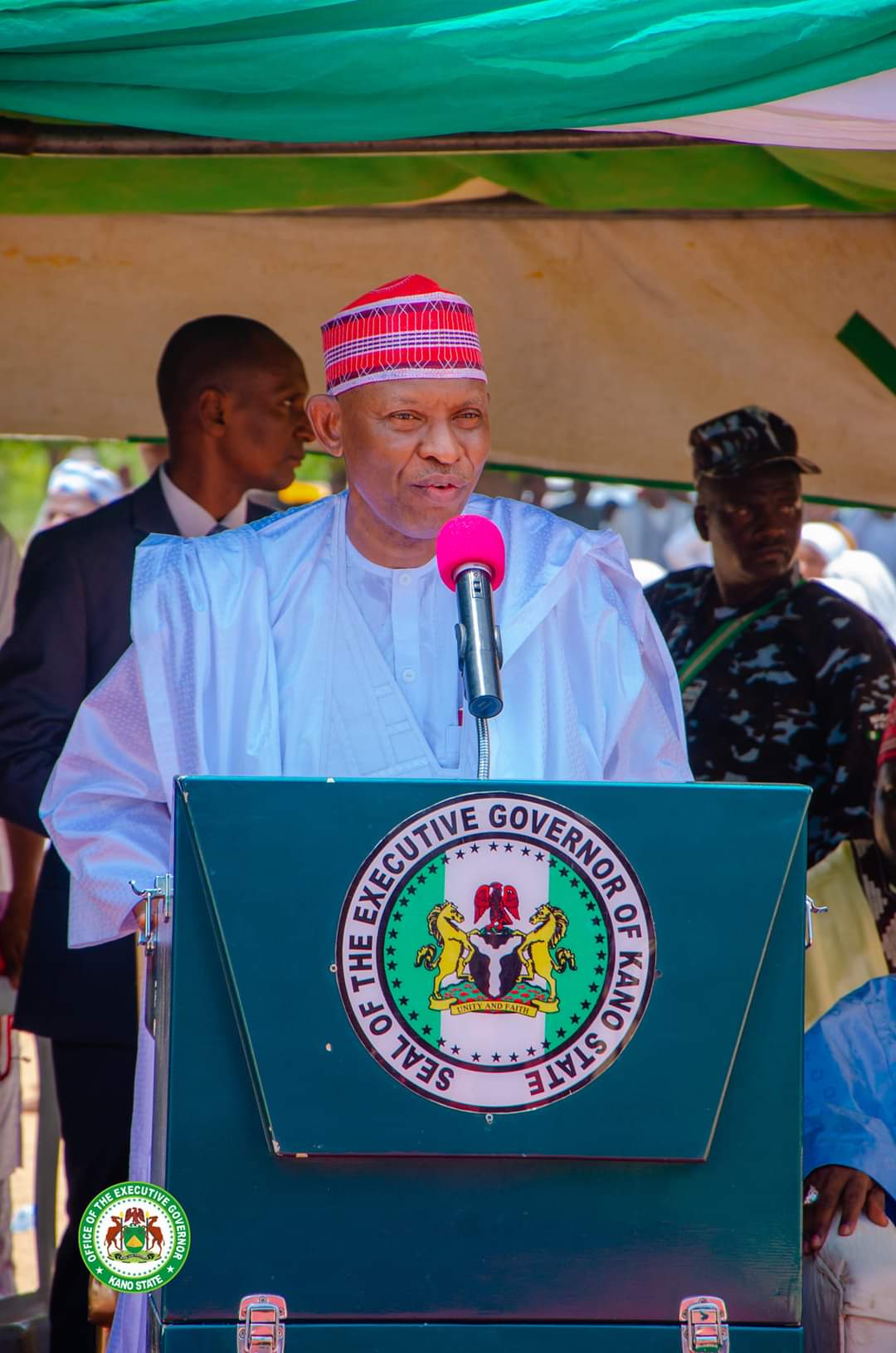Address moral questions in political appointments
The on-going trend in the appointment of individuals into public offices where family affiliations and friendships appear to be prioritized is becoming alarming, and therefore, a worrisome trend in Nigeria. Whereas capacity is central to productivity and the achievement of common national goals for which government fundamentally exists, making family bond or friendship the basic […]

Abba Yusuf, Governor Kano State
The on-going trend in the appointment of individuals into public offices where family affiliations and friendships appear to be prioritized is becoming alarming, and therefore, a worrisome trend in Nigeria. Whereas capacity is central to productivity and the achievement of common national goals for which government fundamentally exists, making family bond or friendship the basic qualification for political appointments does not only undermine the egalitarian right of other citizens to leadership opportunities, but also seeks to reduce governance to an oligarchy.
For example, Governor Abba Yusuf of Kano State recently nominated Mustapha Rabiu Musa Kwankwaso, the son of the 2023 presidential candidate of the New Nigeria Peoples Party (NNPP), Senator Rabiu Musa Kwankwaso, alongside three others for the position of commissioner in the state. A week after the nominations were sent to the state house of assembly, the four commissioner-nominees were confirmed at a plenary on Tuesday, April 2, 2024. The lawmakers, who said they were satisfied with the integrity of the nominees, asked them to take a bow and go.
Reacting to the outburst that greeted the nomination of Mustapha Kwankwaso, Governor Yusuf, who had earlier written to the state assembly that the nomination of Mustapha Kwankwaso and three others was sequel to the establishment of four new ministries, further clarified that Mustapha’s appointment was not a payback.
Mustapha Rabiu Musa Kwankwaso isn’t the first to be favoured with an appointment based on family or political bond. Few weeks before Mustapha’s appointment, Umar Abdullahi Umar Ganduje, who is the son of the National Chairman of the ruling All Progressives Congress (APC) was appointed by President Bola Ahmed Tinubu as the Executive Director of the Rural Electrification Agency (REA).
In October 2023, President Tinubu approved the appointment of 24-year-old Ibrahim Kashim Imam as Chairman of the Board of the Federal Emergency Roads Management Agency (FERMA). Ibrahim, who completed his National Youth Service Scheme in 2022, is a mechanical engineer and the son of a chieftain of the APC, Kashim Imam. Ibrahim’s father, Imam, is also the Chairman of the Board of the Tertiary Education Trust Fund (TETfund) and twice a governorship candidate in Borno State. Following the criticisms that trailed Ibrahim’s appointment, President Tinubu withdrew the offer. Recently too, Dr Temitope Ilori, who is the daughter of Chief Bisi Akande, a former National Chairman of the APC, was appointed by President Tinubu as the Director-General of the National Agency for the Control of AIDS (NACA).
It’s equal in effect to abuse of power when a public officer uses his official capacity to favour his family members and political associates with jobs/appointments. The disregard for those things which an individual requires to be efficient in a particular job, including knowledge, skills and experience, is the height of nepotism and lack of patriotism. It is worse when persons offered on the basis of specific relationships lack the competence required for efficiency in such jobs. Even when favoured appointments are justified; where the beneficiaries possess the expertise, ethical principles and public conscience are there to raise the moral question of the intrinsic wrong in nepotism in whatever form. Nepotism is the act of using power or influence to get good jobs or unfair advantages for members of one’s family or associates.
It’s scandalous enough that lawmakers, who have the statutory mandate of ensuring that only competent nominees are ratified, have relegated their duty over the years in this aspect. We condemn the practice where federal and state lawmakers ask nominees to “take a bow and go” without properly subjecting them to a thorough screening session. In Nigeria, seldom is a nominee of the president or governor rejected on the basis of lack of technical knowledge or requisite experience in the area he/she is being considered for appointment. More often than not, nominees are rejected for political reasons. For now, anything goes.
Besides short-changing the best, or at least, better candidates for the job, it robs young Nigerians of any hope in the future. Before any hope is renewed, there must first be one. Several attendant consequences which could be more devastating in select areas of the society, including the judiciary come along with favoured appointments. It deprives the country of the opportunity to benefit from the experience of its best hands. Favoured appointments similarly weaken the foundations of public trust, and undermine the mutual contract between leaders and the electorate. Employees’ productivity, loyalty and industrial harmony all come under threat where a nominee confirms public fears after assuming duty.
Daily Trust calls on the executive and the legislature to allow conscience and morality to permeate the process of nominating, screening and the appointment of individuals into public offices. It will do the country a whole lot of good.
